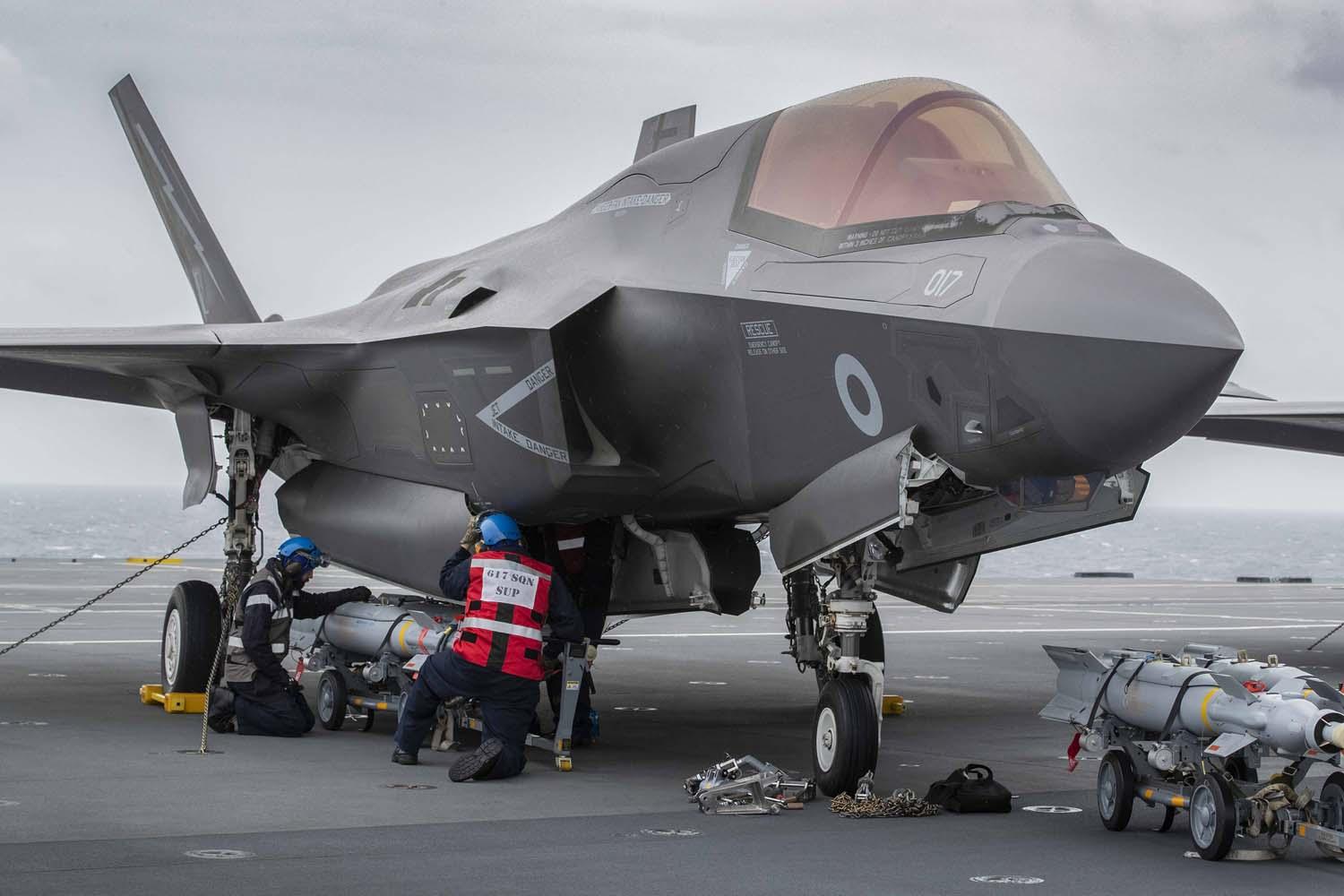The Weekly Debrief: No Easy Fix For F-35 Sustainment Cost Problems, GAO Says

Pentagon officials think they can make the Lockheed Martin F-35 cheaper to operate by taking over several of the sustainment functions outsourced to industry at the beginning of the program.
The problem is that the government still does not have a plan to successfully wrestle those functions away from the collection of contractors that now jealously own those roles.
The lack of a transition plan is compounded by the pressure of a 2027 deadline to transfer the sustainment activity for the F-35 to the U.S. Air Force, Navy and Marines from the Joint Program Office (JPO).
Perhaps more importantly, if the program can’t meet the services’ aggressive affordability targets for operating the F-35, a clause in the National Defense Authorization Act of 2021 will block the U.S. military from buying more of the stealth fighters starting in 2028.
That stark scenario is laid out in a 96-page report released on Sept. 22 by the Government Accountability Office (GAO) that paints a grim picture of indecision within the Pentagon over how to best rein in the F-35’s operating costs.
Lockheed, as the prime contractor, has argued for years that the program should transition to a long-term, performance-based logistics contract. The long-term visibility on spending would, Lockheed argues, incentivize industry to invest in efficiency improvements, which would lower overall costs by at least 10% or more.
But Defense Department officials aren’t persuaded that the JPO is ready to negotiate performance-based logistics contracts, GAO’s auditors say in the new report.
Besides, the Pentagon thinks any savings from a performance-based logistics approach would not exceed potential spending cuts from other approaches.
Instead of handing Lockheed a long-term deal to sustain the U.S. F-35 fleet, the Pentagon instead would prefer to save money by transferring some of the functions now performed by industry to government-owned depots, the report says.
Specifically, the Pentagon could assume control over managing the supply of spare parts, decisions over allocating workload for depots and maintaining the ground support equipment, GAO says.
Such moves would address a long list of government complaints about Lockheed’s contractual stewardship of the F-35 sustainment enterprise. In visits to F-35 operating bases, GAO’s auditors heard that it can take up to 60 days for F-35 maintainers to receive responses to requests for access to technical data.
“According to maintainers we spoke to, part numbers reside in a database that is proprietary to the prime contractor. Maintainers do not have access. Not having ready access to part numbers hinders the repair of the aircraft because it delays the ordering and receipt of needed parts,” the GAO report says.
Although those problems have been known for years, the Pentagon still can’t find a solution. At the beginning of the program, the government chose not to acquire the F-35 technical data and to rely on Lockheed to oversee the sustainment system.
Since 2017, Pentagon officials have been trying to find ways to pry the necessary technical data on the F-35 from Lockheed’s proprietary control. The JPO, for example, established a Technical Data Working Group, with the goal of gathering “cataloging and provisioning data” that would support a government-managed depot repair network.
“Progress from the initiative has been minimal due to stalled negotiations and legal actions,” GAO says.
The delays could have consequences. Mission capability rates for the U.S. F-35 fleet declined in 2021 and 2022, wiping out gains achieved in 2020, GAO says. Moreover, in 2036, the F-35 fleet is expected to cost about $6 billion more than estimated to operate.
The program now has four years to close the gap between cost estimates and actual spending on a cost per tail per year basis. Unless the section of the fiscal 2021 defense authorization law is repealed, the Pentagon would be prohibited from buying more F-35s after 2028 without a dramatic reduction in operating costs.

Comments